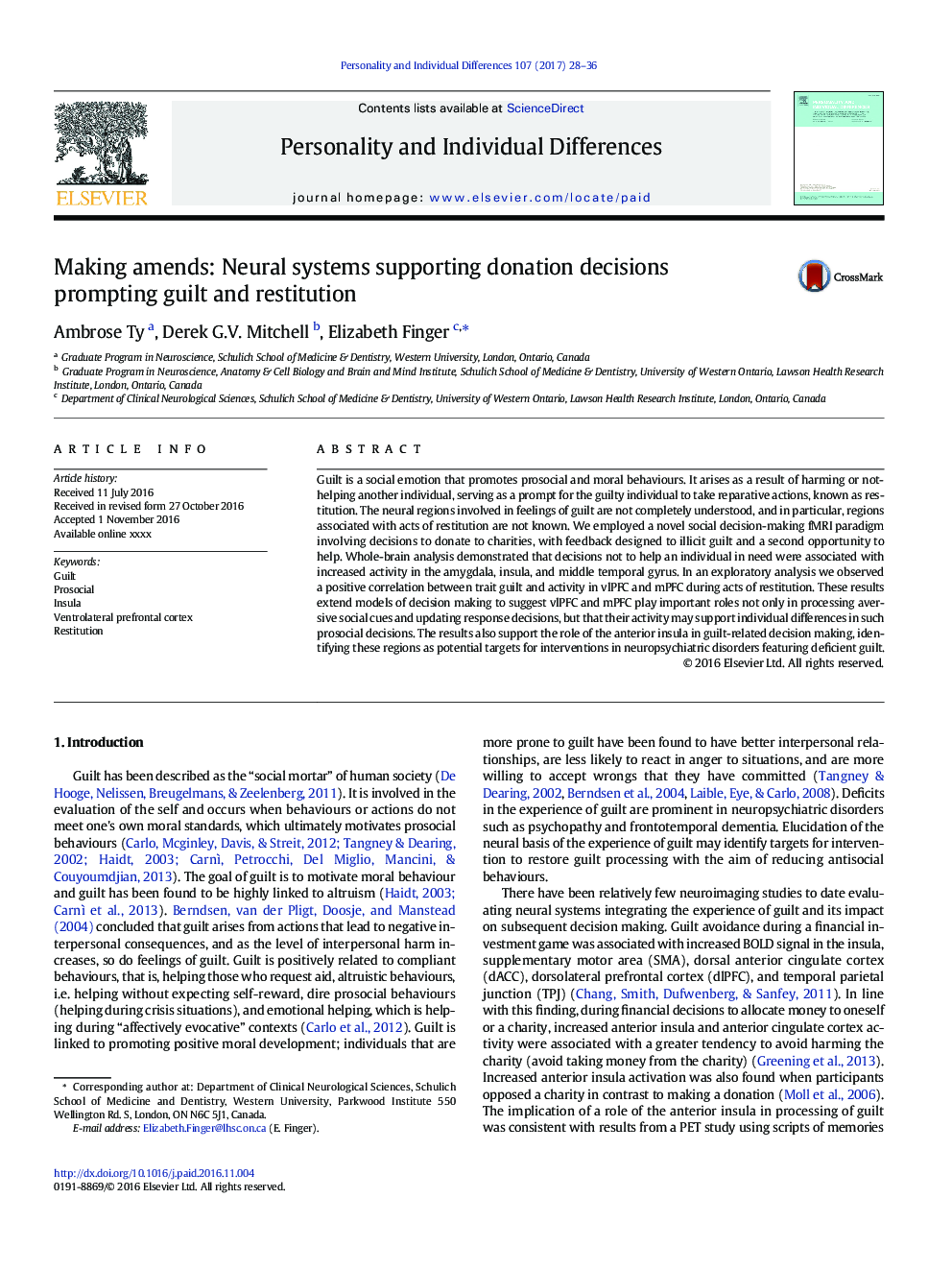| Article ID | Journal | Published Year | Pages | File Type |
|---|---|---|---|---|
| 5036135 | Personality and Individual Differences | 2017 | 9 Pages |
Abstract
Guilt is a social emotion that promotes prosocial and moral behaviours. It arises as a result of harming or not-helping another individual, serving as a prompt for the guilty individual to take reparative actions, known as restitution. The neural regions involved in feelings of guilt are not completely understood, and in particular, regions associated with acts of restitution are not known. We employed a novel social decision-making fMRI paradigm involving decisions to donate to charities, with feedback designed to illicit guilt and a second opportunity to help. Whole-brain analysis demonstrated that decisions not to help an individual in need were associated with increased activity in the amygdala, insula, and middle temporal gyrus. In an exploratory analysis we observed a positive correlation between trait guilt and activity in vlPFC and mPFC during acts of restitution. These results extend models of decision making to suggest vlPFC and mPFC play important roles not only in processing aversive social cues and updating response decisions, but that their activity may support individual differences in such prosocial decisions. The results also support the role of the anterior insula in guilt-related decision making, identifying these regions as potential targets for interventions in neuropsychiatric disorders featuring deficient guilt.
Related Topics
Life Sciences
Neuroscience
Behavioral Neuroscience
Authors
Ambrose Ty, Derek G.V. Mitchell, Elizabeth Finger,
